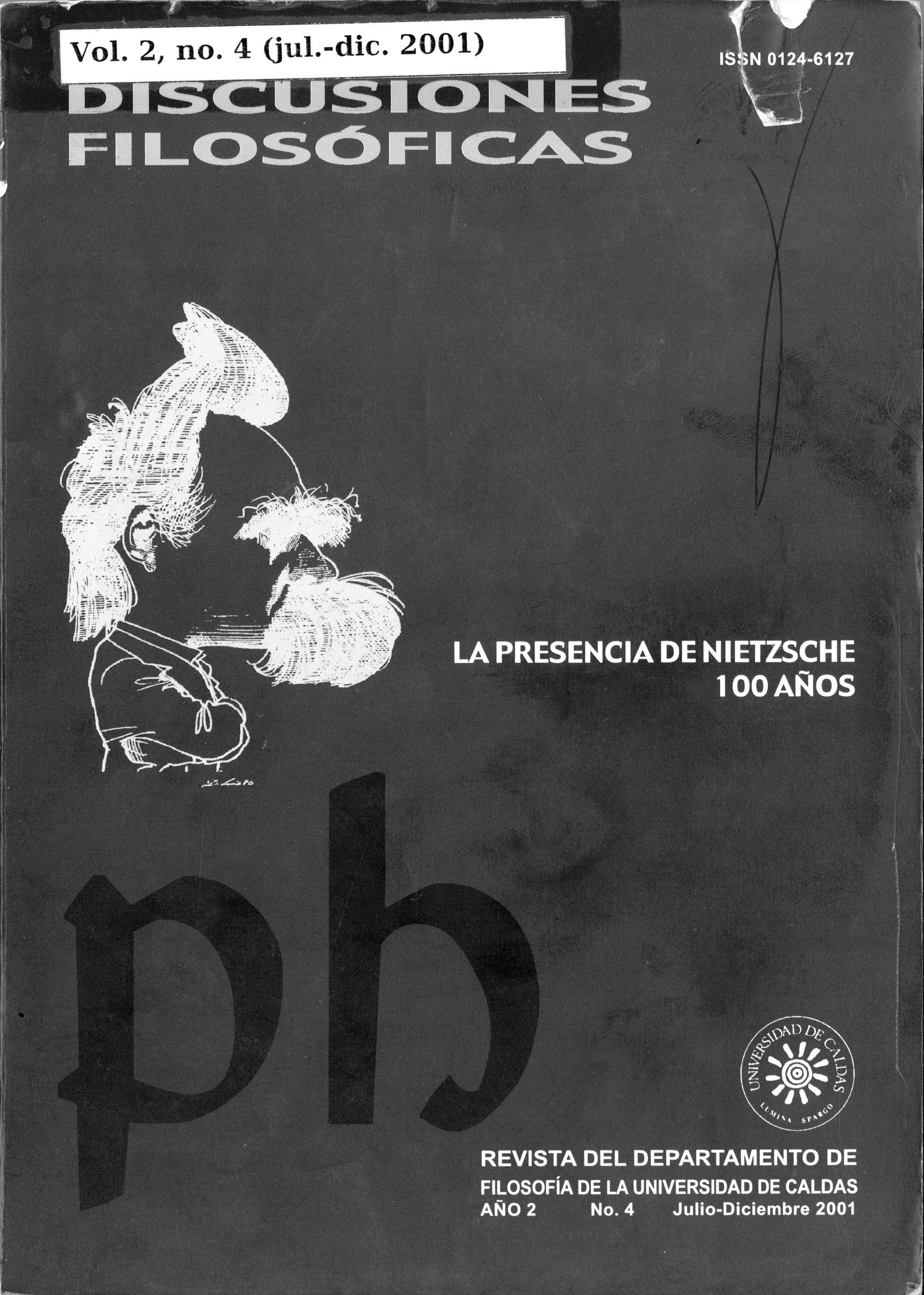Authors
Abstract
Abstract: Four steps are taken in this paper; l) An event is described: God’s death. 2) The scope of that event is characterized as the unfolding of subjectivity metaphysics. 3) The non-thematized consequences of nihilism are displayed as an opening to the art work. 4) The relation between the engaged existence and the on line life is shown as an alternative towards the channeling of the will to power
Nietzsche’s point of view is not introduced in this paper, neither a specialized reading about his ideas. Rather, the position turns around the world of phenomenology which is taken as it has been applied to problems as that of technology related to the world of life as well as to the peculiar problem of artificial intelligence for the development of alternatives designed to the computational representation of mo- ral dilemmas.
The interest for Nietzsche, as shown in this case lies, from the moral point of view, in that he has made clear that most human discourses —the product of subjection and submission— about morals, under various fancy dresses, are expressi may be called self-deception.
References
DREYFUS, Hubert. Nihilismo en línea. Lima: Pontificia Universidad Católica del Perú, 2000;10 págs. (Mimeo).
HABERMAS, Jürgen. Teoría de la acción comunicativa. Madrid: Taurus, 1987. Tomo II.
HEIDEGGER, Martin. Hdlderlin y la esencia de la poesía. Mérida: Talleres Gráficos Universitarios, 1968.
____________Holzwege. Frankfurt: Vittorio Klosterman, 1984.
______________Sein and Zeit. Tübingen: Max Niemeyer Verlag, 1993.
_______________Caminos del Bosque. Madrid: Alianza Universidad. (Citado C.B. ),1996.
_______________Ser y tiempo. Santiago de Chile: Ed. Universitaria, S.A., 1998.
_______________Nietzsche ¡y Ii. Barcelona: Destino, 2000. Vol. I: 530 págs.; Vol. II: 424 págs.
SABATO, Ernesto. La resistencia. Bogotá: Seix Barral, 2000.
VARGAS GUILLÉN, Germán. El disponer. En: Folios. Revista de la Facultad de Humanidades. Bogotá: U. P. N. Segunda época, No. 11, Segundo Semestre de 1999.

 PDF (Español)
PDF (Español)
 FLIP
FLIP
























